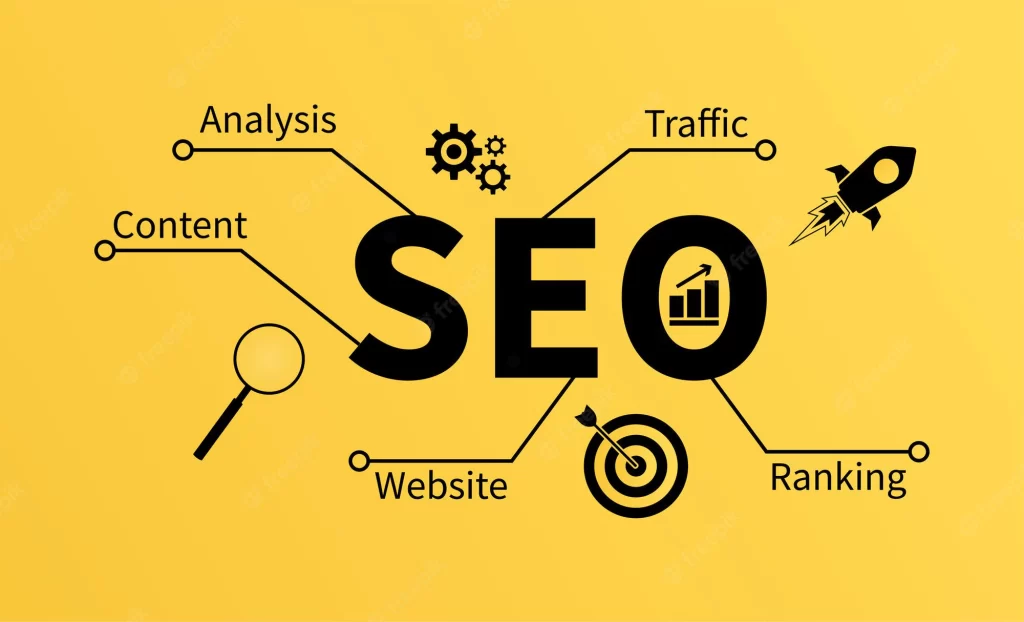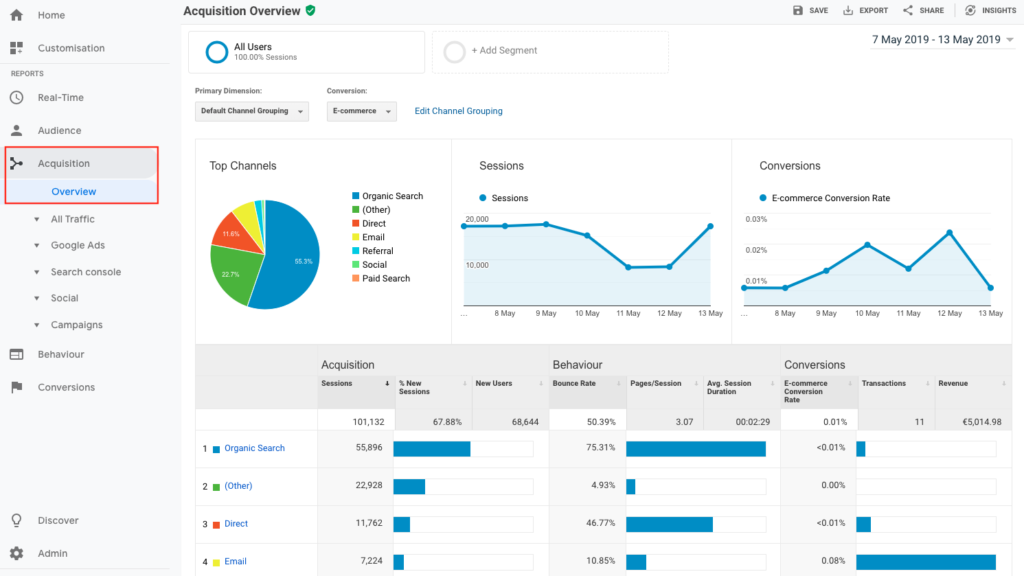SEO is an abbreviation for search engine optimization. SEO’s goal is to increase a company’s visibility in organic search results. As a result, these efforts drive more visitors to the company’s website, increasing the likelihood of more conversions, which leads to more customers and revenue.
When asked to define SEO, I often refer to it as a strategy to ensure that when someone searches for your product or service category, they find your website.

How does SEO work?
SEO works by optimizing a website’s content, conducting keyword research, and acquiring inbound links to raise the ranking and visibility of that content. While results are generally visible on the SERP after a webpage has been crawled and indexed by a search engine, SEO efforts can take months to fully materialize.
Rankings
This is how search engines determine where to place a specific web page in the SERP. Rankings range from zero to the total number of search engine results for the query, and a web page can only rank for one position at a time. A web page’s ranking may change over time due to age, competition in the SERP, or algorithm changes made by the search engine itself.
Visibility
This term refers to how visible a specific domain is in search engine results. Lower search visibility occurs when a domain is not visible for a large number of relevant search queries, whereas higher search visibility is the opposite.
Both are in charge of achieving the primary SEO goals of traffic and domain authority.
Another important reason to use SEO is that it virtually helps you position your brand throughout the entire purchasing journey. As a result, SEO can ensure that your marketing strategies align with the new purchasing habits.
Because, as Google admitted, customer behavior has permanently changed. As of June 2021, Google properties accounted for 92% of all internet searches. Furthermore, they prefer to complete the majority of the purchasing process on their own.
For example, Statista discovered that 60% of people conduct online research on a brand before making a purchase. Furthermore, this process has never been more difficult.
Finally, according to Demand Gen’s 2022 B2B Buyer’s Survey, 67% of B2B buyers begin the buying process with a broad web search.
How does Google know how to rank a page?

Search engines serve a single purpose. They strive to provide the most relevant answers or information to users.
When you use them, their algorithms select the pages that are most relevant to your query. Then, sort them by authority or popularity, displaying the most authoritative or popular first.
Search engines consider two factors when delivering relevant information to users:
The relationship between a search query and the content on a page. Search engines evaluate it based on various factors such as topic or keywords.
The popularity of a website on the Internet is used to determine authority. Google makes the assumption that the more popular a page or resource is, the more valuable its content is to readers.
And to analyse all of this data, they employ complex equations known as search algorithms.
The algorithms used by search engines are kept secret. However, SEOs have identified some of the factors they consider when ranking a page over time. They are referred to as ranking factors, and they are the focal point of an SEO strategy.
Following the E-A-T framework when determining relevance and authority can be extremely beneficial. In SEO, E-A-T stands for “expertise, authority, and trustworthiness.” And, while these are not direct ranking factors, they can help you improve your SEO content, which can have an impact on direct ranking factors.
Adding more content, optimising image filenames, and improving internal links can all have an impact on your rankings and search visibility, as you’ll see shortly. This is due to the fact that each of these actions improves a ranking factor.
What is SEO Strategy
An SEO marketing strategy is a comprehensive plan for increasing the number of visitors to your website via search engines. On-page strategies that use intent-based keywords, as well as off-page strategies that earn inbound links from other websites, are essential for successful SEO.
How to Monitor & Track SEO Results

Technical setup, content, and links are all important factors in ranking a website in search results. Monitoring your efforts allows you to improve your strategy even further.
Measuring SEO success entails keeping track of data such as traffic, engagement, and links. Although most businesses develop their own sets of SEO KPIs (key performance indicators), the following are the most common:
- Increase in organic traffic
- Rankings for keywords (split into branded and non-branded terms)
- Organic traffic conversions
- The average time spent on the page and the bounce rate
- Top landing pages for organic traffic
- Count of indexed pages
- Link development (including new and lost links)